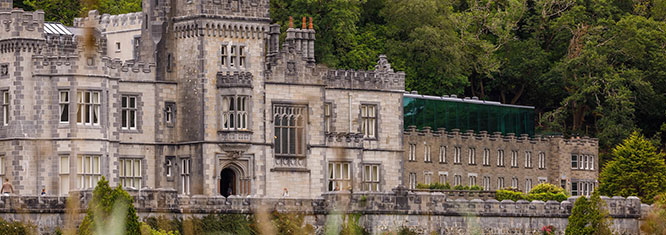Inclusive Catholic Education: Pedagogical Considerations for Teaching and Learning Across Intellectual Difference
Abstract
This early stage research concept seeks to develop pedagogical commitments that draw upon theological aesthetics and participatory action research models to foster Catholic education that is inclusive of a diversity of ways of knowing.
My hope it to contribute to a conversation around how to shape Catholic education towards ever more inclusive pedagogical commitments that invite participation across the entire spectrum of human intellectual diversity. I propose that more equitable pedagogical access arises through carefully assessing and removing barriers that might exist in overly-intellectualized or hyper-cognitive approaches to Catholic education. Relatedly, this invites us to consider the role of the affect and bodily knowing in Catholic education. I suggest that raising critical consciousness around ableism and the pernicious ‘othering’ of those deemed different from supposed norms is a process whereby the entire Church benefits and the body of Christ becomes more whole.
The central question underlying this concept is how Catholic education can better make space for those labeled as disabled while not erecting more walls to their full inclusion in the community of teaching and learning. Such questions invite an exploration of creative and innovative pedagogical methodologies. Towards this end, I suggest theological aesthetics, particularly as theo-drama, as providing a more universally accessible way of educating in faith that opens space for those who learn better with their hearts and hands than with their minds, but which can also spark intellectual curiosity. Questions of accessibility and inclusion also point towards participatory research methodologies that can center the experience and perspective of people labeled as intellectually disabled within Catholic education.
Signs of grace include the enthusiasm of my friends who have been labeled as intellectually disabled about the opportunities that such work might open to them. Additionally, I take the burgeoning interdisciplinary conversation at the intersection of theology and disability studies as a sign of grace. Ultimately, I remain convinced that drawing people towards unity within the wide human diversity of abilities should be central to Catholic religious education.
Inclusive Catholic Education: Pedagogical Considerations for Teaching and Learning Across Intellectual Difference
This early stage research concept seeks to develop pedagogical commitments that draw upon theological aesthetics and participatory action research models to foster Catholic education that is inclusive of a diversity of ways of knowing.
My hope it to contribute to a conversation around how to shape Catholic education towards ever more inclusive pedagogical commitments that invite participation across the entire spectrum of human intellectual diversity. I propose that more equitable pedagogical access arises through carefully assessing and removing barriers that might exist in overly-intellectualized or hyper-cognitive approaches to Catholic education. Relatedly, this invites us to consider the role of the affect and bodily knowing in Catholic education. I suggest that raising critical consciousness around ableism and the pernicious ‘othering’ of those deemed different from supposed norms is a process whereby the entire Church benefits and the body of Christ becomes more whole.
The central question underlying this concept is how Catholic education can better make space for those labeled as disabled while not erecting more walls to their full inclusion in the community of teaching and learning. Such questions invite an exploration of creative and innovative pedagogical methodologies. Towards this end, I suggest theological aesthetics, particularly as theo-drama, as providing a more universally accessible way of educating in faith that opens space for those who learn better with their hearts and hands than with their minds, but which can also spark intellectual curiosity. Questions of accessibility and inclusion also point towards participatory research methodologies that can center the experience and perspective of people labeled as intellectually disabled within Catholic education.
Signs of grace include the enthusiasm of my friends who have been labeled as intellectually disabled about the opportunities that such work might open to them. Additionally, I take the burgeoning interdisciplinary conversation at the intersection of theology and disability studies as a sign of grace. Ultimately, I remain convinced that drawing people towards unity within the wide human diversity of abilities should be central to Catholic religious education.


